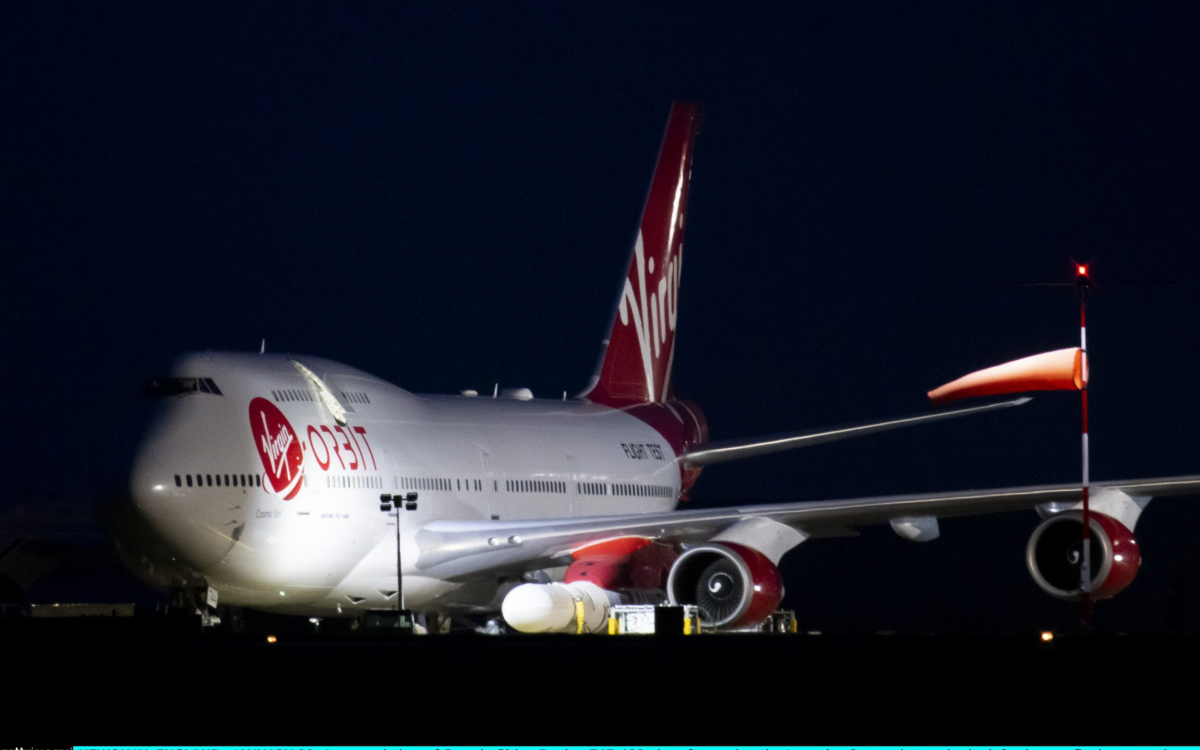"Start Me Up", the first orbital launch that the American company Virgin Orbit was to perform from England, ended in failure.
A publicly traded company
Founded in 2017 in Long Beach, California, by ebullient British billionaire Richard Branson as part of the Virgin Group, Virgin Orbit - not to be confused with subsidiary Virgin Galactic, dedicated to space tourism - has been publicly traded for now a year (under the ticker symbol VORB), with a 17.9 % Emirati stake (via the investment fund Mubadala).
In August 2021, at the time of its merger with investment vehicle NextGen Acquisition in preparation for its Nasdaq listing, Virgin Orbit's valuation stood at $3.7 billion.
Last November, the company (which has about 680 people today) announced that it had third-quarter 2022 revenue of $30.9 million.
An airborne system
Virgin Orbit offers responsive space launches for small payloads (up to 500 kg in low earth orbit or 300 kg in sun-synchronous orbit), using its LauncherOne airborne system.
This one consists of a lightweight launcher about 30 t at liftoff and about 21 m in height, embarked under the left wing of a modified former Virgin Atlantic Airline 747-400 named Cosmic Girl.
The launcher is carried up to 35 000 feet (10,668 km), before being jettisoned and immediately fired to complete its mission.
It consists of two stages, with each engine powered by liquid kerosene and oxygen.
The first engine, NewtonThree (N3), delivers 327 kN of thrust and operates for 180 seconds.
The second engine, NewtonFour (N4), delivers 16 kN of thrust and operates for 360 seconds.
LauncherOne, which had a list price in early 2021 of $12 million, competes directly with U.S. light launch vehicles Electron (RocketLab), Firefly Alpha (Firefly Aerospace), Pegasus (Northrop Grumman), Terran 1 (Relativity Space) and RS 1 (ABL Space Systems).
Four successful missions out of five
LauncherOne, the second airborne launch vehicle in history after Pegasus (which entered service in April 1990), had so far only been operated from Mojave Airport in California's Mojave Desert with drops over the Pacific Ocean.
The first launch attempt dates back to May 25 2020, but ended in failure, with a broken hydraulic line causing the first stage to prematurely shut down just after ignition.
The first success came on Jan. 17 2021, with the launch of 10 cubesats from ELaNa (Educational Launch of Nanosatellites) program of Nasa.
Three more missions followed, all successful (in June 2021, January and July 2022), bringing to 31 the number of payloads launched by LauncherOne (including 15 U.S. military satellites).
" Anomaly "
The sixth LauncherOne mission this time was to take place from Great Britain, with liftoff of the carrier aircraft on 9 January at 22:02 UTC from the spatioport of Cornwall (on the southwestern tip of the island), followed by separation with the launcher over the Atlantic Ocean (southwest of Ireland) at 23:11 UTC.
The launcher embarked nine nanosatellites 3 and 6U, on behalf of seven international customers (British, American, Omani and Polish), civil and military, dedicated to Earth observation, research in the ionosphere, technological demonstrations or knowledge of the maritime environment.
The mission had been named " Start Me Up " (Start Me Up), in homage to the flagship title of the album " Tattoo You " of the famous British rock band The Rolling Stones, released in 1981 by ... Virgin Records.
With much publicity (including the mobilization of former British astronaut Tim Peake), Britain was thus about to experience the first ever satellite launch made from its territory.
Las, after about 5 minutes of flight, the second stage of the LauncherOne fell victim to a " anomaly ", and the targeted orbit could not be reached.
" It's very disappointing, but it's hard to get into space and valuable lessons will be learned ", commented Tim Peake the next day, which didn't stop Virgin Orbit's stock from plunging 30 percent...
Spaceport Cornwall
Located in the county of Cornwall, the Spaceport Cornwall adjoins the Newquay regional airport, which opened in 1962.
The plan to host Virgin Orbit there dates back to 2019.
The British government and Cornwall Council said at the time that they were prepared to invest up to £20 million, and then the UK Space Agency (Uksa) announced that it would provide £7.35 million.
The launch authorization for the " Start Me Up " mission was issued on Dec. 21 by the Civil Aviation Authority (CAA), which oversees and regulates all aspects of civil aviation in the United Kingdom.
Découvrez cet article sur Air&Cosmos

